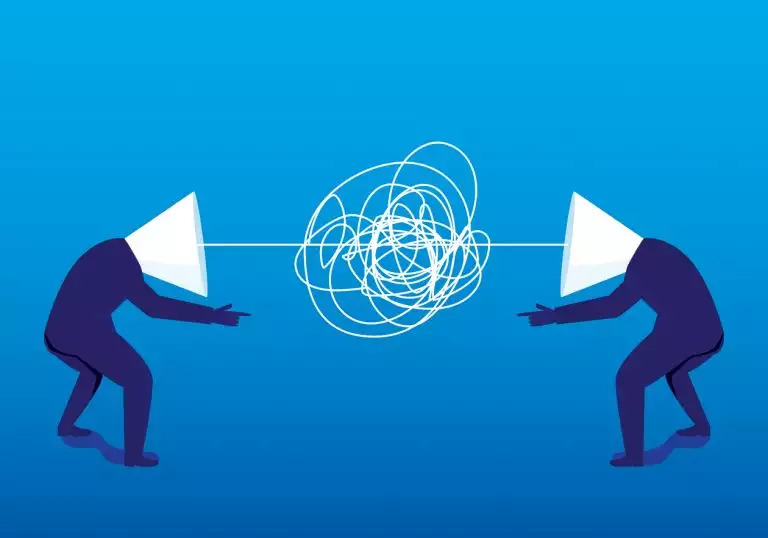
I lost my friends on the Left when i voted for Narendra Modi in 2014. I lost my friends on the Right when i criticised Modi for demonetisation, majoritarian politics and weakened institutions.
With the election approaching, i am disillusioned. Acche din have not come but nationalism has, and the India that i love is changing. I am surrounded by Modi bhakts and Modi haters, both of whom i find mildly distasteful.
My problem is that i don't know who to vote for. I don't have confidence in Rahul Gandhi. I am mortally afraid of the mahagathbandhan, the chaotic coalition that offers nothing except to remove Modi. I am in a dilemma and my consolation is that i am not alone: many middle of the road Indians are in the same tragic place.
Five years ago, i was also disgruntled. Inflation was high, growth was declining, corruption was rampant and the UPA government was paralysed. I was anxious that India might miss the bus again. It had a limited opportunity called the 'demographic dividend', which came from having a uniquely young population.
If those in the working age could be employed, the nation would be gifted with a bonus in its GDP growth. The moral imperative for the next leader was to create the conditions for job creation. I decided that Modi was our best hope. It was not an easy decision. Hindu nationalism had never appealed to me. I was aware of Modi's dictatorial tendencies and the risk to secularism. I did not gloss over the stain of Gujarat 2002 but if India failed to create jobs, we would lose another generation.
It was bad enough to have lost two generations to the Licence Raj from 1950 to 1990. I felt India's democratic institutions were strong enough to prevent a dictatorial state and Modi seemed to have learned a lesson since Gujarat had been quiet since 2002.
In 2019, the promised jobs are nowhere in sight and there is distress among farmers. Modi has not turned out to be the transformative leader i had hoped would leverage his historic majority to reform vigorously. Had he reformed the distribution of farm commodities, some of the present distress could have been avoided. He could have used the banking crisis to privatise the worst public sector banks, which i'm afraid are going the way of Air India.
Nevertheless, the economy has been managed reasonably well. The fiscal deficit has declined, inflation has dropped to a record 2-3%, and infrastructure is improving. Because of Modi's obsession with digitising the state-citizen interface, corruption is also down.
His main reforms – bankruptcy law, GST, and direct benefit transfers – will bring huge benefits in the years to come. Demonetisation, alas, was a disaster but the much-awaited GST, although poorly implemented initially, is a game changer. The bankruptcy law will ensure assets are more productively employed in the future. Tens of millions more Indians have bank accounts and mobile banking is taking off, making a gradual conversion of leaky government subsidies to cash transfers possible. Citizen-state transactions are moving online and this is why India's rank jumped up 30 places in the World Bank's 'Ease of Doing Business'.
Modi has begun the job of making India function better. Despite these achievements, i am unhappy with BJP's majoritarian politics and its obsession with Hindu nationalism. Institutions have weakened – i no longer trust GDP and job numbers. Why has Modi failed to deliver? It comes down to poor state capacity and an excessive reliance on the civil service.
He announced too many programmes and those that mattered, like jobs, got lost. To create productive jobs, India has to become more competitive. This is a complex job that cannot be left to the IAS, which does not have the competence and suffers from the old export pessimism. Pessimists need to be reminded that global trade is $16 trillion and India's share is an abysmal 1.7%. If this could grow to 2.5%, acche din would be here. The jobs leaving China should come to India, not Vietnam.
When Modi promised "minimum government, maximum governance", i expected him to begin the difficult job of reforming the state. Why does it take 12 years to get justice? Nothing demoralises a bright young IAS entrant more than the fact that a high performer and a low performer get promoted on the same day. Weak state capacity is exacerbated by excessive accountability because the nation is always in an election mode. To be fair, Modi did champion simultaneous elections but he couldn't get the opposition's support.
So, who will i vote for in 2019? The truth is i don't know yet. Modi remains the most popular leader by far. There seems little hope of Congress and its allies uniting into an effective government. I would have preferred a less statist, more secular Modi or a more experienced, determined Rahul Gandhi hungry for reform. But this is a utopian wish.
Between the two i know that Modi will do far more for economic and governance reform but am i willing to pay the huge price in the loss of social cohesion and dissent? As a centrist, i tend to vote for what is reasonable and pragmatic, not on prejudice or along party lines. Many Indian voters, i think, are like me, caught in the tragic dilemma of the voter in the middle.